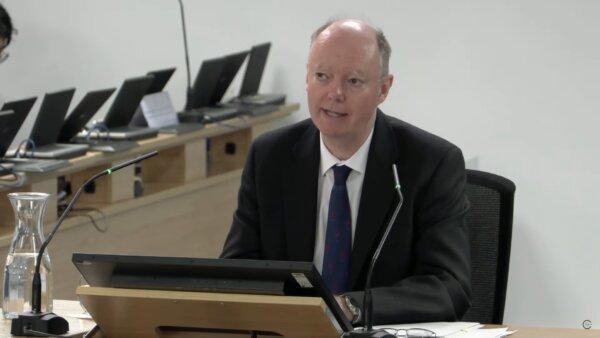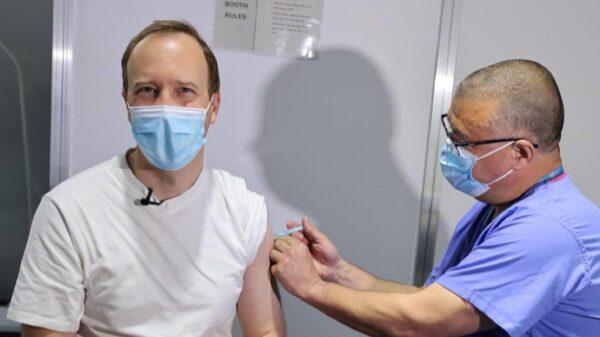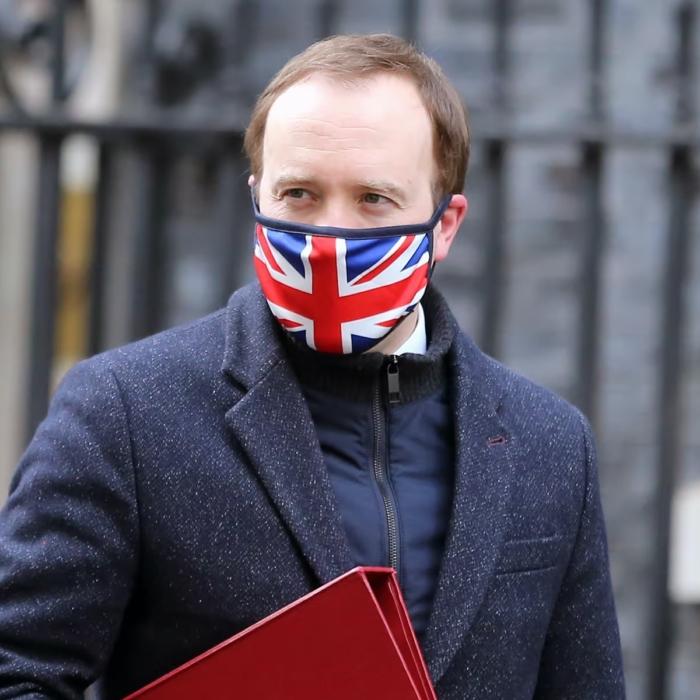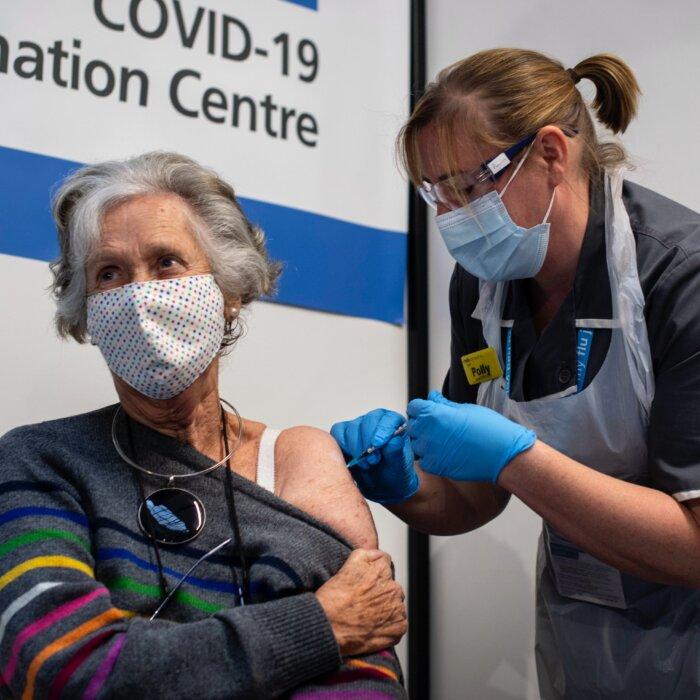Chief Medical Officer Professor Sir Chris Whitty told the UK Covid-19 Inquiry that pregnant women ought to have been part of the vaccine trials and there is “probably an exaggerated worry” about giving drugs to expectant mothers.
Giving evidence to the long-running inquiry in London on Monday, Whitty said that among health care professionals, midwives had one of the lowest rates of vaccine uptake, which he suggested was evidence that “there is not a strong tradition of encouraging vaccines in pregnant women.”
The chief medical officer was questioned by Hugo Keith, KC, lead counsel for the inquiry, on the authorisation of the various vaccines, and was asked about “the extent to which pregnant or breastfeeding women could take part” in the clinical trials.
“There is an automatic assumption that pregnant women will be excluded from trials until it is proved that a drug is safe, and under ordinary circumstances, that makes sense, and people constantly think back to, and worry about, for example, Thalidomide, and never wanting that repeated,” Whitty said, referring to the 1960s scandal of the morning sickness drug routinely given to expectant mothers which caused serious birth defects.
Whitty said the advice given from the UK Health Security Agency (UKHSA) changed because “it became clear that pregnant women and their unborn children were coming to harm because of COVID, preventably, because they had not been vaccinated.”
“In an emergency like [COVID-19], the risk-benefit does change,” he said, adding that “excluding [groups of] people systematically from studies is a problem across the board.
Low Uptake Among Midwives
He told the inquiry it was “notable that one of the lowest uptakes of vaccines in the entire medical and health care workforce was among midwives ... so there is actually not a strong tradition of encouraging vaccines in pregnant women.”Whitty did not suggest reasons as to why vaccination rates might be lower in midwives than among other medical staff, but said it was “quite a bit lower than some other groups in the health care profession. This is not a judgment but a statement of fact, but I think that gives you a feeling that worries about drugs and vaccines are deeply entrenched in this area.”
Whitty added that because women and their unborn babies were “uniquely vulnerable” to infections such as the Zika virus, which is spread by mosquitoes, this means that “doing trials in this area is very important.”
The Joint Committee for Vaccines and Immunisation advised in December 2020 that there was insufficient evidence to recommend the new jabs to pregnant women, but this advice was revised in April 2021, following what Public Health England said was “real world data from the United States.”

‘Not a Happy History’
“In general, mandation has not got a very happy history, so there are practical reasons for not doing it,” Whitty said, referring to the 1853 law mandating the smallpox vaccine for children—unless their parents paid for an exemption—which led to a protest movement among working class people in the industrialised towns of the north and Midlands.“And indeed, in my view, what happened after mandating in the social care sector in England probably will be added to that catalogue,” Whitty said, adding that the available evidence showed that mandates “increase uptake and decrease trust” in vaccination.
‘Reinterpreted Meaning’
The chief medical officer, who was knighted in 2022, said it was difficult to remember exactly what he had meant in messages four years ago, but said he had “reinterpreted” the meaning from his written statement, and now thought he was referring to post-vaccination cases of the illness.“What I subsequently realised was this was in the context of an exchange between Mr. Hancock and Lord Darzy where [Darzy] had said he'd had a vaccination, and subsequently got COVID,” Whitty said.

Suicides Among Vaccine Injured
Giving evidence to the inquiry on Tuesday on behalf of the vaccine injured and bereaved support group UKCV Family, Charlet Crichton said, “We know of cases where people’s data has been dropped from the trials because they suffered injury.”However, Crichton was not allowed to elaborate on this as lead counsel Keith told her the inquiry could not consider such “individual” stories.
Crichton, who founded the group after being vaccine injured herself and finding a lack of knowledge and support within the medical establishment, told the inquiry that if the Medicines and Healthcare products Regulatory Agency (MHRA) had acted sooner to warn people of the risks posed by the jabs, lives could have been saved.
She said that on March 22, 2021, a letter was sent from Public Health England to hospitals to advise them how to spot cases of the condition known as vaccine-induced thrombocytopenia and thrombosis (VITT), a specific kind of blood-clotting caused by the now withdrawn AstraZeneca jab. The MHRA did not issue its first public warning about VITT until April 7, 2021.
“Our concern is that we have members whose loved ones died in that period, and they feel that their deaths may have been prevented if the MHRA had been more public sooner,” Crichton said.
She added that her members had serious concerns about the monitoring of adverse reactions through the Yellow Card system, as she said some of their reports had gone missing from the database when they attempted to follow up, and studies suggest only around 10 percent of people are aware of the scheme.
On the “traumatic” process of applying to the Vaccine Damage Payment Scheme run by the government, Crichton—who was herself rejected for the payout—said: “We’ve had suicides within the group, and we’ve attended funerals for these people.
“It’s an extremely stigmatised illness. No one wants to hear that you’ve had an adverse reaction to the COVID vaccine,” she said, calling for vaccine damage to be recognised as a workplace injury if it is ever mandated as a condition of employment.
Module 4 of the inquiry, examining vaccines and other drugs, is set to run until the end of January.







